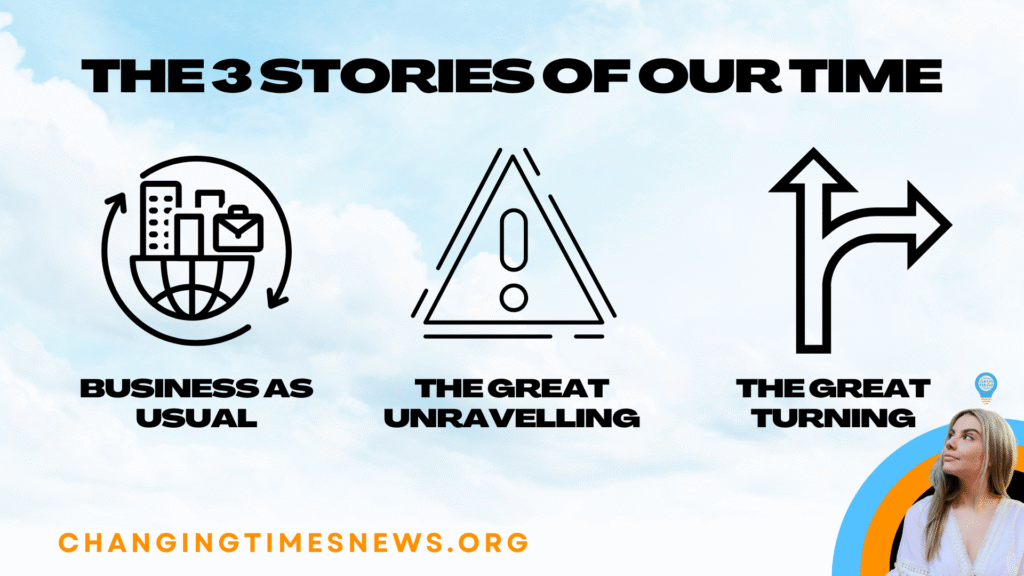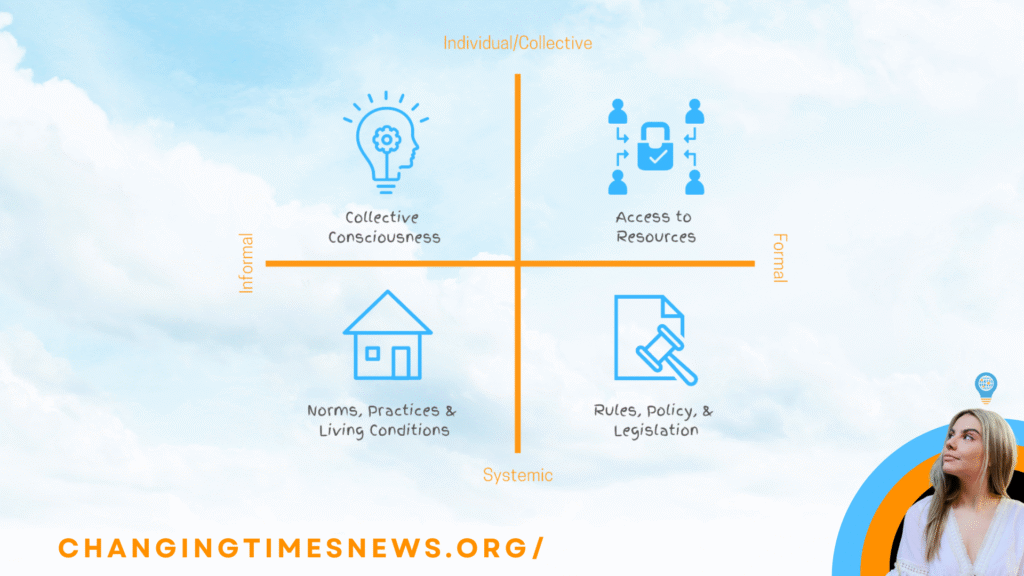In the latest episode of Changemaker Q&A, the conversation turns inward: do we have a problem with our moral imagination? It’s a timely question, given the turbulence of our era. From climate collapse to political polarization, the way we imagine—and fail to imagine—the future shapes the choices we make today.
The Three Stories of Our Time
Drawing on the late Joanna Macy’s influential framework, The Work That Reconnects, the episode revisits the “three stories of our time”:
- Business as Usual – the narrative that everything is largely fine, and that incremental improvements will solve our challenges.
- The Great Unraveling – the recognition that our systems are collapsing, and that the future looks bleak.
- The Great Turning – the belief that humanity is at a pivotal crossroads, with the chance to transition towards regenerative, sustainable systems.
Responses to a recent TikTok post about these narratives showed most people felt caught between stories two and three: aware of unraveling, but yearning for transformation. That tension raises the question—what’s holding us back from embracing story three more fully?

What Is Moral Imagination?
Moral imagination, at its core, is the capacity to envision alternatives: to see the consequences of our actions, empathize beyond our immediate circle, and imagine futures that could be otherwise. Philosopher Mark Johnson describes it as “the ability to imaginatively discern various possibilities for acting in a given situation and to envision the potential help and harm that are likely to result from a given action” (Stanford Encyclopedia of Philosophy).
But as the episode highlights, moral imagination isn’t just an intellectual exercise. It’s also a social practice—one that demands long-term thinking, ecological awareness, and the courage to collaborate across differences.
Why We Struggle to Imagine Alternatives
Several barriers limit moral imagination today:
- Short-termism: Political cycles and quarterly profits push decision-making toward immediate gains rather than future flourishing.
- Human-centered thinking: By seeing ourselves as separate from nature, we miss the reality that our wellbeing is interwoven with ecological systems (UN Environment Programme).
- Scarcity and competition: A mindset shaped by rivalry and budget constraints narrows what feels possible.
- Hierarchical leadership: Concentrated power often silences diverse perspectives that could spark innovative solutions.
As the podcast argues, shifting toward collaboration, distributive leadership, and even recognizing nature as a stakeholder—as some legal systems now do by granting rights to rivers and forests (Earth Law Center)—can expand the horizons of what we collectively imagine.
From Unraveling to Turning
The challenge, then, is not only to critique the unraveling but to practice living the Great Turning. That means cultivating communities where moral imagination can thrive—spaces where people can learn, experiment, and co-create futures beyond scarcity and fear.
As Tiyana J reflects in the episode, part of the work ahead may be improving our “social change literacy”: helping more people recognize not only the protests and holding actions that resist collapse, but also the constructive, regenerative efforts quietly building new systems.
Imagining Forward
The stakes of moral imagination are not abstract. Whether we see ourselves as passengers on a sinking ship or pioneers of a turning tide will shape how we act in the present. As Macy urged, our task is to think in terms of generations, both past and future, and to orient our choices accordingly.
The question is whether we can widen our moral imagination enough to move decisively from unraveling toward turning—and, in doing so, bring the story of a regenerative future to life.


